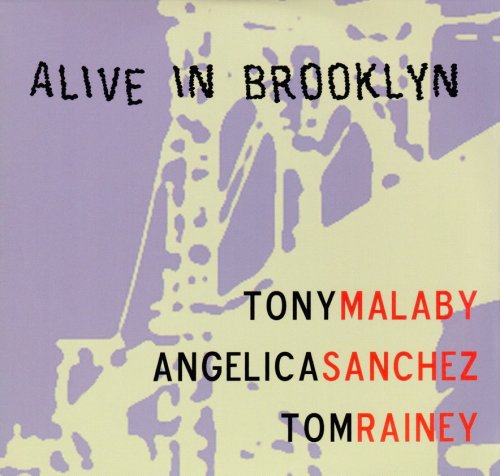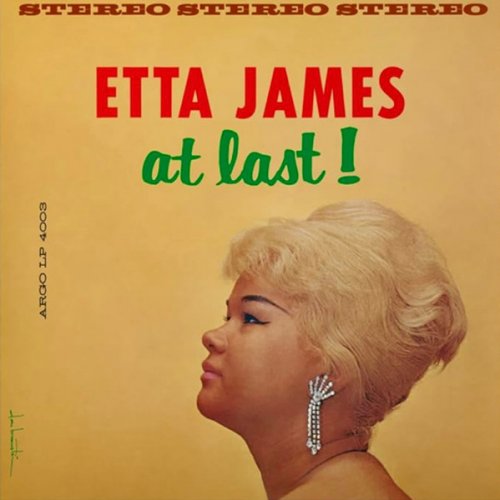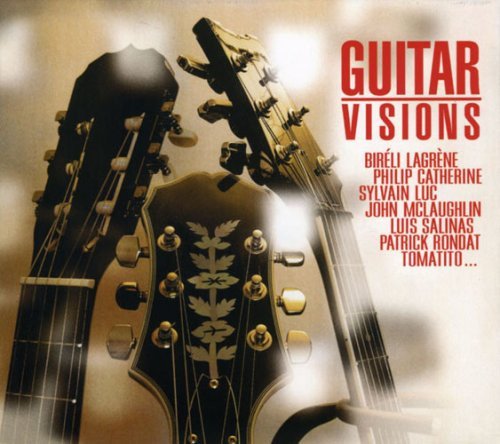Gladys Knight & The Pips & Johnny Mathis - It's Christmas Time Again (2002)
- 19 Nov, 14:01
- change text size:
Facebook
Twitter
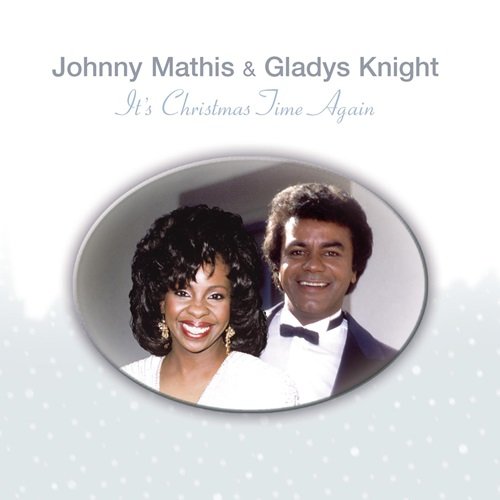
Artist: Gladys Knight & The Pips, Johnny Mathis
Title: It's Christmas Time Again
Year Of Release: 2002
Label: Sony Music Entertainment
Genre: Christmas
Quality: Mp3 320 / Flac (tracks)
Total Time: 01:01:55
Total Size: 150/354 Mb
WebSite: Album Preview
Tracklist:Title: It's Christmas Time Again
Year Of Release: 2002
Label: Sony Music Entertainment
Genre: Christmas
Quality: Mp3 320 / Flac (tracks)
Total Time: 01:01:55
Total Size: 150/354 Mb
WebSite: Album Preview
01. That Special Time of Year 3:48
02. It's Beginning To Look A Lot Like Christmas (Album Version) 2:15
03. Toyland (Album Version) 3:41
04. What Are You Doing New Year's Eve? (Album Version) 4:36
05. The Christmas Waltz (Album Version) 2:37
06. It's the Happiest Time of the Year 4:41
07. Christmas Is For Everyone/ Where Can I Find Christmas (Album Version) 5:10
08. Santa Claus Is Comin' To Town (Album Version) 4:42
09. It's The Most Wonderful Time Of The Year (Album Version) 2:45
10. This Christmas 3:28
11. I Believe 4:15
12. When a Child Is Born (Soleado) 3:53
13. The Lord's Prayer 3:26
14. Let There Be Peace On Earth (Let It Begin with Me) 4:06
15. Every Christmas Eve/Giving (Santa's Theme) (Album Version) 4:03
16. It's Christmas Time Again (Album Version) 4:30
Gladys Knight & The Pips:
Steeped in the gospel tradition like so many early R&B groups, Gladys Knight & the Pips topped the Billboard R&B chart for the first time in 1961 with "Every Beat of My Heart" and later in the decade developed into one of Motown's most dependable acts, responsible for 11 Top Ten R&B hits from 1966 through 1972, including "I Heard It Through the Grapevine," "The Nitty Gritty," "If I Were Your Woman," and the Grammy-winning "Neither One of Us (Wants to Be the First to Say Goodbye)." The group doubled its quantity of Top Ten R&B hits with the Buddah label through 1978, with second Grammy winner "Midnight Train to Georgia," "I've Got to Use My Imagination," and "Best Thing That Ever Happened to Me" accounting for a streak of chart-toppers off the gold-selling album Imagination. Knight & the Pips remained together through the '80s, a period that entailed the additional R&B Top Ten entries "Landlord," "Save the Overtime (For Me)," and the Grammy-winning "Love Overboard," and were inducted into the Rock and Roll Hall of Fame the following decade. Having released her first two Pips-less albums during the late '70s, Knight began a full-time solo career during the early '90s. The singer's solitary discography includes an assortment of adult contemporary R&B, gospel, and jazz recordings, highlighted by the Grammy-winning 2001 album At Last and awarded collaborations with Saints Unified Voices and Ray Charles. Among Knight's later releases is the 2014 Top Ten gospel album Where My Heart Belongs. She remains an active performer.
Gladys Knight, her brother Merald "Bubba," sister Brenda, and cousins Eleanor Guest and William Guest formed their first vocal group in their native Atlanta, Georgia in 1952. Calling themselves the Pips, after their cousin James "Pips" Woods, the youngsters sang supper-club material from Monday through Saturday and gospel music on Sundays. They first recorded for Brunswick Records in 1958, releasing the single "Whistle My Love." Another cousin of the Knights, Edward Patten, along with Langston George, were brought into the group the following year when Brenda and Eleanor left to get married. Three years elapsed before the Pips' next sessions, which produced a version of Johnny Otis' "Every Beat of My Heart" for the small Huntom label. This song, which highlighted Knight's bluesy, compelling vocal style, was licensed to Vee Jay Records when it began attracting national attention, and went on to top the U.S. R&B chart and reach the pop Top Ten. By this time, the group, now credited as Gladys Knight & the Pips, had signed a long-term recording contract with Fury Records, where they issued a re-recording of "Every Beat of My Heart" that competed for sales with the original release. Subsequent singles such as "Letter Full of Tears" and "Operator" sealed the group's R&B credentials. A switch in 1964 to the Maxx label -- where they worked with producer Van McCoy -- generated minor hits with "Giving Up" and "Lovers Always Forgive." Langston George retired from the group in 1962, leaving the four-strong lineup that survived into the '80s.
In 1966, Gladys Knight & the Pips signed to Motown Records' Soul subsidiary, where they were teamed up with producer/songwriter Norman Whitfield. Knight's tough vocals distinguished them from Motown's pop-soul roster. Between 1967 and 1968, they had major R&B and minor pop hits in the U.S. with "Everybody Needs Love," "The End of the Road," "It Should Have Been Me," and "I Wish It Would Rain," but enjoyed most success with the original release of "I Heard It Through the Grapevine," an uncompromisingly muscular performance of a song that in 1969 became a Motown standard in the hands of its author, Marvin Gaye. Gladys Knight & the Pips' version topped the R&B chart for six weeks at the end of 1967 and also reached number two on the pop chart.
The group enjoyed further R&B and pop hits at the end of the decade with "Didn't You Know (You'd Have to Cry Sometime)," "The Nitty Gritty," "Friendship Train," and "You Need Love Like I Do (Don't You)," while the poignant "If I Were Your Woman" was one of the label's biggest-selling releases of 1970 and provided the group with its third R&B chart-topper. In the early '70s, Knight & the Pips slowly moved away from their original blues-influenced sound toward a more middle-of-the-road harmony blend. Their new approach brought them success in 1973 with the smash hit "Neither One of Us (Wants to Be the First to Say Goodbye)" (number one R&B, number two pop, and a Grammy winner for Best Pop Performance by a Duo or Group with Vocals), while further hits during this period included "I Don't Want to Do Wrong," "Make Me the Woman That You Go Home To," "Help Me Make It Through the Night," and "Daddy Could Swear, I Declare."
In late 1973, Gladys Knight & the Pips elected to leave Motown for Buddah Records, unhappy with the former label's shift of operations from Detroit to Los Angeles. At Buddah, the group found immediate success with "Where Peaceful Waters Flow" and "Midnight Train to Georgia," an arresting soul ballad that topped the R&B and pop charts (and won a Grammy for Best R&B Performance by a Duo or Group with Vocals). Major hits such as "I've Got to Use My Imagination" and "Best Thing That Ever Happened to Me" (R&B chart-toppers and pop Top Five hits) mined a similar vein. In 1974, the group performed Curtis Mayfield's soundtrack songs for the movie Claudine, spawning the major hit "On and On," and the following year the title track of I Feel a Song gave them another R&B number one. Their smoother approach was epitomized by the medley of "The Way We Were/Try to Remember," released in 1975, the same year that saw Knight and the group host their own U.S. television series.
Gladys Knight made her acting debut in Pipe Dreams in 1976, for which the group recorded a soundtrack album. Legal problems then dogged their career until the end of the decade, forcing Knight & the Pips to record separately until they could sign a new recording contract with CBS Records. Knight enjoyed minor R&B hits at the end of the decade with the solo singles "I'm Coming Home Again" and "Am I Too Late," and during this period released her first two solo albums, Miss Gladys Knight and Gladys Knight. About Love in 1980 teamed the reunited group with the Ashford & Simpson writing/production partnership, and resulted in strident pieces of R&B social commentary in "Landlord" and "Bourgie Bourgie." Subsequent releases alternated between the group's R&B and MOR modes, generating hits such as the R&B chart-topper "Save the Overtime (For Me)" and "You're Number One in My Book" (both 1983). In 1985, Knight appeared on the chart-topping and Grammy-winning pop hit "That’s What Friends Are For," alongside Elton John, Dionne Warwick, and Stevie Wonder. After a move to MCA Records in 1986, "Love Overboard" demonstrated that Gladys Knight & the Pips could work equally well in both R&B and pop genres, taking the group back to the top of the R&B chart and into the pop Top 20 at the end of 1987. The latter song earned them a Grammy Award for the Best R&B Performance in early 1989, the year the group enjoyed two final R&B hits with "Lovin' on Next to Nothin'" and "It's Gonna Take All Our Love."
In 1989, Gladys Knight & the Pips parted company following a tour. Merald remained with his sister when she achieved a U.K. Top Ten hit that year with the James Bond movie song "Licence to Kill" (her highest U.K. chart position since Gladys Knight & the Pips' 1977 Top Five hit "Baby Don't Change Your Mind"). Knight's third and fourth albums, Good Woman and Just for You, followed respectively in 1991 and 1994. The former topped the R&B chart and the latter peaked at number six and went gold. She scored her last Top Ten R&B hit in 1996 with "Missing You," a collaboration with Chaka Khan, Brandy, and Tamia, recorded for the soundtrack of Set It Off. The same year, she and the Pips were inducted into the Rock and Roll Hall of Fame. Eleanor Guest died of heart failure the following year. Released in 2001, Knight's sixth solo album, At Last, made her a solo Grammy winner when it won the award for Best Traditional R&B Vocal Album. In 2004, she won a Grammy in the category of Best Gospel Performance with the Ray Charles collaboration "Heaven Help Us All." One Voice, a collaboration with Saints Unified Voices, won the award the following year for Best Gospel Choir or Chorus Album. Later that year, Edward Patten died from diabetic complications.
Knight's periodic subsequent recordings have alternated between contemporary gospel and adult contemporary R&B, and temporarily changed course in 2006 with Before Me, a set of jazz standards recorded for the Verve label. The next year, Langston George died of heart failure. Knight resumed performing, including a tour intended to be her U.K. farewell in 2009. She released Another Journey and the Top Ten gospel LP Where My Heart Belongs during the first half of the 2010s. William Guest died of heart failure in 2015. Knight has continued to perform, including extensive touring across the U.K.
Johnny Mathis:
One of the most popular in a long line of traditional vocalists who emerged before the rock-dominated 1960s, Johnny Mathis has concentrated on romantic readings of jazz and pop standards for adult contemporary audiences. Though he debuted with a flurry of singles chart activity, including the Hot 100-topping "Chances Are" (1957), Mathis later made it big in the album market, where a dozen of his LPs reached gold or platinum status and over 60 made the Billboard 200. While he originally concentrated on theme-oriented albums of show tunes and traditional favorites, from the '70s onward, Mathis began incorporating more varied styles of music into his recordings, including soft rock, R&B, and country. Also a beloved interpreter of holiday music, he has charted with over a half-dozen Christmas albums and nearly as many seasonal singles, including his perennially charting rendition of "It's Beginning to Look a Lot Like Christmas" (1986). This stylistic eclecticism, combined with his honeyed vocal tone, has helped Johnny Mathis remain a popular concert attraction well into the 21st century. He released his seventh Christmas album, Christmas Time Is Here, in 2023.
Unsurprisingly, given his emphasis on long sustained notes and heavy vibrato, Mathis studied with an opera coach prior to his teenage years, and was almost lured into the profession; his other inspirations were the smoother crossover jazz vocalists of the 1940s -- Nat "King" Cole, Billy Eckstine, and Lena Horne. Mathis was an exceptional high school athlete in San Francisco, but was wooed away from a college track scholarship and a potential spot on the Olympic squad by the chance to sing. He was signed to a management contract by club owner Helen Noga, who introduced the singer to George Avakian, jazz producer for Columbia Records. Avakian signed him and used orchestras conducted by Teo Macero, Gil Evans, and John Lewis to record Mathis' self-titled debut album in 1957. Despite the name talent and choice of standards, it was mostly ignored upon release.
Columbia A&R executive Mitch Miller -- known for his desperately pop-slanted Sing Along albums and TV show -- decided the only recourse was switching Mathis to Miller's brand of pop balladry, and the formula worked like a charm; the LP Wonderful Wonderful didn't include but was named after a Top 20 hit later in 1957, which was followed by the number five "It's Not for Me to Say" and his first number one, "Chances Are." From that point on, Johnny Mathis concentrated strictly on lush ballads for adult contemporary listeners.
Though he charted consistently, massive hit singles were rare for Johnny Mathis during the late '50s and '60s -- half of his career Top Ten output had occurred in 1957 alone -- so he chose to focus instead on the burgeoning album market, much like Frank Sinatra, his main rival during the late '50s as the most popular traditional male vocalist. Mathis moved away from show tunes and traditional pop into soft rock during the '70s, and he had his second number one single, "Too Much, Too Little, Too Late," in 1978. Recorded as a duet with Deniece Williams, the single prompted Mathis to begin trying duets with a variety of partners (including Dionne Warwick, Natalie Cole, Gladys Knight, and Nana Mouskouri), though none of the singles enjoyed the success of the original.
Mathis continued to release and sell albums throughout the '90s -- his fifth decade of recording for Columbia -- and beyond, among them 1998's Because You Loved Me: Songs of Diane Warren and 2000's Mathis on Broadway. Mathis followed the Broadway album with 2002's The Christmas Album and 2005's Isn't it Romantic: The Standards Album, both of which found the iconic vocalist in fine form. In 2008, Mathis released the Walter Afanasieff-produced and arranged A Night to Remember, his first straight-ahead adult contemporary album in over a decade. Let It Be Me: Mathis in Nashville, Mathis' first full-length album of country music, appeared in September of 2010. The album ultimately garnered a Grammy Award nomination for Best Traditional Pop Vocal Album. Mathis released his sixth holiday album, Sending You a Little Christmas, in 2013, and in 2017 he issued Johnny Mathis Sings the Great New American Songbook, which saw him taking on contemporary hits from the likes of Adele, Josh Groban, R. Kelly, and more.
Three months after the September release of Sings the Great New American Songbook, Legacy released the comprehensive The Voice of Romance: The Columbia Original Album Collection, a 68-CD box containing every album he released for the label between 1956 and 2017. The Voice of Romance also featured I Love My Lady, a Mathis album produced by Nile Rodgers and Bernard Edwards in 1981 but never released.
In 2023, Mathis presented his seventh set of newly recorded Christmas songs, Christmas Time Is Here, which included a duet with Kristin Chenoweth. It was the final album to be recorded at Hollywood's legendary Capitol Recording Studio before it closed for extensive renovations.
Steeped in the gospel tradition like so many early R&B groups, Gladys Knight & the Pips topped the Billboard R&B chart for the first time in 1961 with "Every Beat of My Heart" and later in the decade developed into one of Motown's most dependable acts, responsible for 11 Top Ten R&B hits from 1966 through 1972, including "I Heard It Through the Grapevine," "The Nitty Gritty," "If I Were Your Woman," and the Grammy-winning "Neither One of Us (Wants to Be the First to Say Goodbye)." The group doubled its quantity of Top Ten R&B hits with the Buddah label through 1978, with second Grammy winner "Midnight Train to Georgia," "I've Got to Use My Imagination," and "Best Thing That Ever Happened to Me" accounting for a streak of chart-toppers off the gold-selling album Imagination. Knight & the Pips remained together through the '80s, a period that entailed the additional R&B Top Ten entries "Landlord," "Save the Overtime (For Me)," and the Grammy-winning "Love Overboard," and were inducted into the Rock and Roll Hall of Fame the following decade. Having released her first two Pips-less albums during the late '70s, Knight began a full-time solo career during the early '90s. The singer's solitary discography includes an assortment of adult contemporary R&B, gospel, and jazz recordings, highlighted by the Grammy-winning 2001 album At Last and awarded collaborations with Saints Unified Voices and Ray Charles. Among Knight's later releases is the 2014 Top Ten gospel album Where My Heart Belongs. She remains an active performer.
Gladys Knight, her brother Merald "Bubba," sister Brenda, and cousins Eleanor Guest and William Guest formed their first vocal group in their native Atlanta, Georgia in 1952. Calling themselves the Pips, after their cousin James "Pips" Woods, the youngsters sang supper-club material from Monday through Saturday and gospel music on Sundays. They first recorded for Brunswick Records in 1958, releasing the single "Whistle My Love." Another cousin of the Knights, Edward Patten, along with Langston George, were brought into the group the following year when Brenda and Eleanor left to get married. Three years elapsed before the Pips' next sessions, which produced a version of Johnny Otis' "Every Beat of My Heart" for the small Huntom label. This song, which highlighted Knight's bluesy, compelling vocal style, was licensed to Vee Jay Records when it began attracting national attention, and went on to top the U.S. R&B chart and reach the pop Top Ten. By this time, the group, now credited as Gladys Knight & the Pips, had signed a long-term recording contract with Fury Records, where they issued a re-recording of "Every Beat of My Heart" that competed for sales with the original release. Subsequent singles such as "Letter Full of Tears" and "Operator" sealed the group's R&B credentials. A switch in 1964 to the Maxx label -- where they worked with producer Van McCoy -- generated minor hits with "Giving Up" and "Lovers Always Forgive." Langston George retired from the group in 1962, leaving the four-strong lineup that survived into the '80s.
In 1966, Gladys Knight & the Pips signed to Motown Records' Soul subsidiary, where they were teamed up with producer/songwriter Norman Whitfield. Knight's tough vocals distinguished them from Motown's pop-soul roster. Between 1967 and 1968, they had major R&B and minor pop hits in the U.S. with "Everybody Needs Love," "The End of the Road," "It Should Have Been Me," and "I Wish It Would Rain," but enjoyed most success with the original release of "I Heard It Through the Grapevine," an uncompromisingly muscular performance of a song that in 1969 became a Motown standard in the hands of its author, Marvin Gaye. Gladys Knight & the Pips' version topped the R&B chart for six weeks at the end of 1967 and also reached number two on the pop chart.
The group enjoyed further R&B and pop hits at the end of the decade with "Didn't You Know (You'd Have to Cry Sometime)," "The Nitty Gritty," "Friendship Train," and "You Need Love Like I Do (Don't You)," while the poignant "If I Were Your Woman" was one of the label's biggest-selling releases of 1970 and provided the group with its third R&B chart-topper. In the early '70s, Knight & the Pips slowly moved away from their original blues-influenced sound toward a more middle-of-the-road harmony blend. Their new approach brought them success in 1973 with the smash hit "Neither One of Us (Wants to Be the First to Say Goodbye)" (number one R&B, number two pop, and a Grammy winner for Best Pop Performance by a Duo or Group with Vocals), while further hits during this period included "I Don't Want to Do Wrong," "Make Me the Woman That You Go Home To," "Help Me Make It Through the Night," and "Daddy Could Swear, I Declare."
In late 1973, Gladys Knight & the Pips elected to leave Motown for Buddah Records, unhappy with the former label's shift of operations from Detroit to Los Angeles. At Buddah, the group found immediate success with "Where Peaceful Waters Flow" and "Midnight Train to Georgia," an arresting soul ballad that topped the R&B and pop charts (and won a Grammy for Best R&B Performance by a Duo or Group with Vocals). Major hits such as "I've Got to Use My Imagination" and "Best Thing That Ever Happened to Me" (R&B chart-toppers and pop Top Five hits) mined a similar vein. In 1974, the group performed Curtis Mayfield's soundtrack songs for the movie Claudine, spawning the major hit "On and On," and the following year the title track of I Feel a Song gave them another R&B number one. Their smoother approach was epitomized by the medley of "The Way We Were/Try to Remember," released in 1975, the same year that saw Knight and the group host their own U.S. television series.
Gladys Knight made her acting debut in Pipe Dreams in 1976, for which the group recorded a soundtrack album. Legal problems then dogged their career until the end of the decade, forcing Knight & the Pips to record separately until they could sign a new recording contract with CBS Records. Knight enjoyed minor R&B hits at the end of the decade with the solo singles "I'm Coming Home Again" and "Am I Too Late," and during this period released her first two solo albums, Miss Gladys Knight and Gladys Knight. About Love in 1980 teamed the reunited group with the Ashford & Simpson writing/production partnership, and resulted in strident pieces of R&B social commentary in "Landlord" and "Bourgie Bourgie." Subsequent releases alternated between the group's R&B and MOR modes, generating hits such as the R&B chart-topper "Save the Overtime (For Me)" and "You're Number One in My Book" (both 1983). In 1985, Knight appeared on the chart-topping and Grammy-winning pop hit "That’s What Friends Are For," alongside Elton John, Dionne Warwick, and Stevie Wonder. After a move to MCA Records in 1986, "Love Overboard" demonstrated that Gladys Knight & the Pips could work equally well in both R&B and pop genres, taking the group back to the top of the R&B chart and into the pop Top 20 at the end of 1987. The latter song earned them a Grammy Award for the Best R&B Performance in early 1989, the year the group enjoyed two final R&B hits with "Lovin' on Next to Nothin'" and "It's Gonna Take All Our Love."
In 1989, Gladys Knight & the Pips parted company following a tour. Merald remained with his sister when she achieved a U.K. Top Ten hit that year with the James Bond movie song "Licence to Kill" (her highest U.K. chart position since Gladys Knight & the Pips' 1977 Top Five hit "Baby Don't Change Your Mind"). Knight's third and fourth albums, Good Woman and Just for You, followed respectively in 1991 and 1994. The former topped the R&B chart and the latter peaked at number six and went gold. She scored her last Top Ten R&B hit in 1996 with "Missing You," a collaboration with Chaka Khan, Brandy, and Tamia, recorded for the soundtrack of Set It Off. The same year, she and the Pips were inducted into the Rock and Roll Hall of Fame. Eleanor Guest died of heart failure the following year. Released in 2001, Knight's sixth solo album, At Last, made her a solo Grammy winner when it won the award for Best Traditional R&B Vocal Album. In 2004, she won a Grammy in the category of Best Gospel Performance with the Ray Charles collaboration "Heaven Help Us All." One Voice, a collaboration with Saints Unified Voices, won the award the following year for Best Gospel Choir or Chorus Album. Later that year, Edward Patten died from diabetic complications.
Knight's periodic subsequent recordings have alternated between contemporary gospel and adult contemporary R&B, and temporarily changed course in 2006 with Before Me, a set of jazz standards recorded for the Verve label. The next year, Langston George died of heart failure. Knight resumed performing, including a tour intended to be her U.K. farewell in 2009. She released Another Journey and the Top Ten gospel LP Where My Heart Belongs during the first half of the 2010s. William Guest died of heart failure in 2015. Knight has continued to perform, including extensive touring across the U.K.
Johnny Mathis:
One of the most popular in a long line of traditional vocalists who emerged before the rock-dominated 1960s, Johnny Mathis has concentrated on romantic readings of jazz and pop standards for adult contemporary audiences. Though he debuted with a flurry of singles chart activity, including the Hot 100-topping "Chances Are" (1957), Mathis later made it big in the album market, where a dozen of his LPs reached gold or platinum status and over 60 made the Billboard 200. While he originally concentrated on theme-oriented albums of show tunes and traditional favorites, from the '70s onward, Mathis began incorporating more varied styles of music into his recordings, including soft rock, R&B, and country. Also a beloved interpreter of holiday music, he has charted with over a half-dozen Christmas albums and nearly as many seasonal singles, including his perennially charting rendition of "It's Beginning to Look a Lot Like Christmas" (1986). This stylistic eclecticism, combined with his honeyed vocal tone, has helped Johnny Mathis remain a popular concert attraction well into the 21st century. He released his seventh Christmas album, Christmas Time Is Here, in 2023.
Unsurprisingly, given his emphasis on long sustained notes and heavy vibrato, Mathis studied with an opera coach prior to his teenage years, and was almost lured into the profession; his other inspirations were the smoother crossover jazz vocalists of the 1940s -- Nat "King" Cole, Billy Eckstine, and Lena Horne. Mathis was an exceptional high school athlete in San Francisco, but was wooed away from a college track scholarship and a potential spot on the Olympic squad by the chance to sing. He was signed to a management contract by club owner Helen Noga, who introduced the singer to George Avakian, jazz producer for Columbia Records. Avakian signed him and used orchestras conducted by Teo Macero, Gil Evans, and John Lewis to record Mathis' self-titled debut album in 1957. Despite the name talent and choice of standards, it was mostly ignored upon release.
Columbia A&R executive Mitch Miller -- known for his desperately pop-slanted Sing Along albums and TV show -- decided the only recourse was switching Mathis to Miller's brand of pop balladry, and the formula worked like a charm; the LP Wonderful Wonderful didn't include but was named after a Top 20 hit later in 1957, which was followed by the number five "It's Not for Me to Say" and his first number one, "Chances Are." From that point on, Johnny Mathis concentrated strictly on lush ballads for adult contemporary listeners.
Though he charted consistently, massive hit singles were rare for Johnny Mathis during the late '50s and '60s -- half of his career Top Ten output had occurred in 1957 alone -- so he chose to focus instead on the burgeoning album market, much like Frank Sinatra, his main rival during the late '50s as the most popular traditional male vocalist. Mathis moved away from show tunes and traditional pop into soft rock during the '70s, and he had his second number one single, "Too Much, Too Little, Too Late," in 1978. Recorded as a duet with Deniece Williams, the single prompted Mathis to begin trying duets with a variety of partners (including Dionne Warwick, Natalie Cole, Gladys Knight, and Nana Mouskouri), though none of the singles enjoyed the success of the original.
Mathis continued to release and sell albums throughout the '90s -- his fifth decade of recording for Columbia -- and beyond, among them 1998's Because You Loved Me: Songs of Diane Warren and 2000's Mathis on Broadway. Mathis followed the Broadway album with 2002's The Christmas Album and 2005's Isn't it Romantic: The Standards Album, both of which found the iconic vocalist in fine form. In 2008, Mathis released the Walter Afanasieff-produced and arranged A Night to Remember, his first straight-ahead adult contemporary album in over a decade. Let It Be Me: Mathis in Nashville, Mathis' first full-length album of country music, appeared in September of 2010. The album ultimately garnered a Grammy Award nomination for Best Traditional Pop Vocal Album. Mathis released his sixth holiday album, Sending You a Little Christmas, in 2013, and in 2017 he issued Johnny Mathis Sings the Great New American Songbook, which saw him taking on contemporary hits from the likes of Adele, Josh Groban, R. Kelly, and more.
Three months after the September release of Sings the Great New American Songbook, Legacy released the comprehensive The Voice of Romance: The Columbia Original Album Collection, a 68-CD box containing every album he released for the label between 1956 and 2017. The Voice of Romance also featured I Love My Lady, a Mathis album produced by Nile Rodgers and Bernard Edwards in 1981 but never released.
In 2023, Mathis presented his seventh set of newly recorded Christmas songs, Christmas Time Is Here, which included a duet with Kristin Chenoweth. It was the final album to be recorded at Hollywood's legendary Capitol Recording Studio before it closed for extensive renovations.

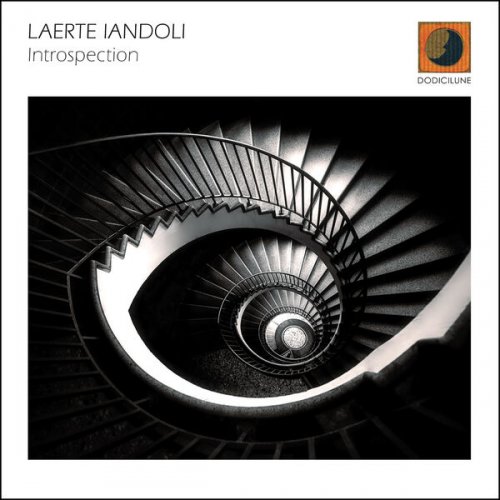
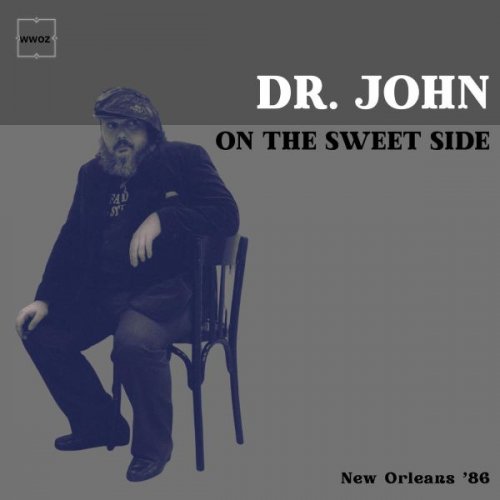

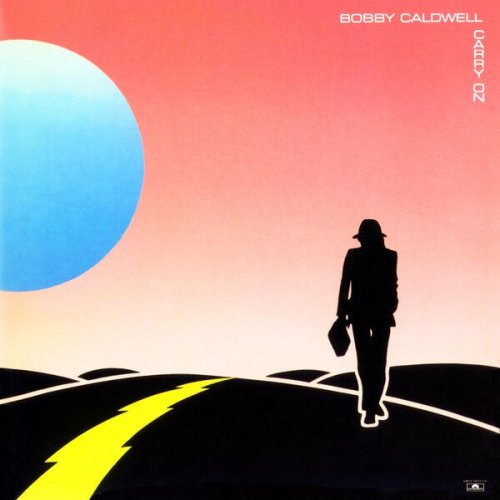
![Julius Hemphill - Dogon A.D. (Remastered) (1972/2026) [Hi-Res] Julius Hemphill - Dogon A.D. (Remastered) (1972/2026) [Hi-Res]](https://www.dibpic.com/uploads/posts/2026-03/1772427281_cover.png)
